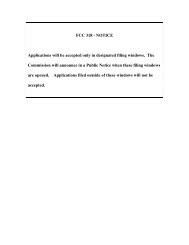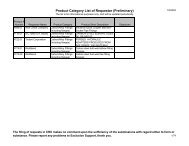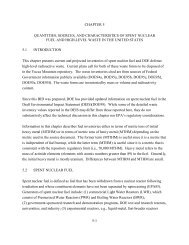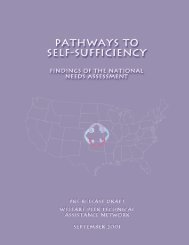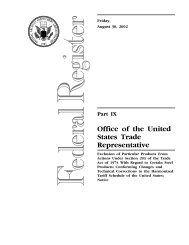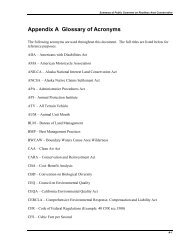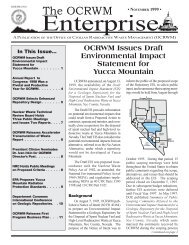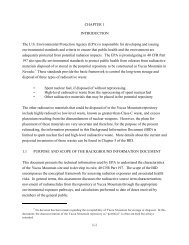E-Commerce Commission Press Kit
E-Commerce Commission Press Kit
E-Commerce Commission Press Kit
You also want an ePaper? Increase the reach of your titles
YUMPU automatically turns print PDFs into web optimized ePapers that Google loves.
CHAPTER EIGHT:CHALLENGES AHEADThis report has focused on the emergence of the digital economy—the promise it contains andsome of the challenges it poses. Some of the challenges are technical, others involve thedevelopment of standards, and still others require significant capital investments.The digital revolution is also changing the respective roles of government and the private sector.In the 19 th and for much of the 20 th centuries, governments played a key role in helping build oractively regulate much of the country’s infrastructure. The federal government made extensiveland grants to encourage private capital to expand the nation’s rail network. Governmentsubsidies were used to stimulate the development of an airline industry. Federal and state dollarscombined to build and maintain the interstate highway system. In communications, thegovernment granted a virtual monopoly to a single company and regulated the industry after itsbreakup. Most power companies have been regulated monopolies at the state or federal level.The federal government funded and developed early versions of the Internet for national securityand research purposes. It will continue to provide funding for research and development onfuture Internet and high-performance computing technologies. However, most of the capital tobuild the computing and telecommunications infrastructure is being provided by the privatesector.The pace of technological development and the borderless environment created by the Internetdrives a new paradigm for government and private sector responsibilities. Creating the optimalconditions for the new digital economy to flourish requires a new, much less restrictive approachto the setting of rules.• Governments must allow electronic commerce to grow up in an environment driven bymarkets, not burdened with extensive regulation, taxation or censorship. Whilegovernment actions will not stop the growth of electronic commerce, if they are toointrusive, progress can be substantially impeded.• Where possible, rules for the Internet and electronic commerce should result from privatecollection action, not government regulation.• Governments do have a role to play in supporting the creation of a predictable legalenvironment globally for doing business on the Internet, but must exercise this role in anon-bureaucratic fashion.• Greater competition in telecommunications and broadcast industries should be encouragedso that high-bandwidth services are brought to homes and offices around the world and so50





